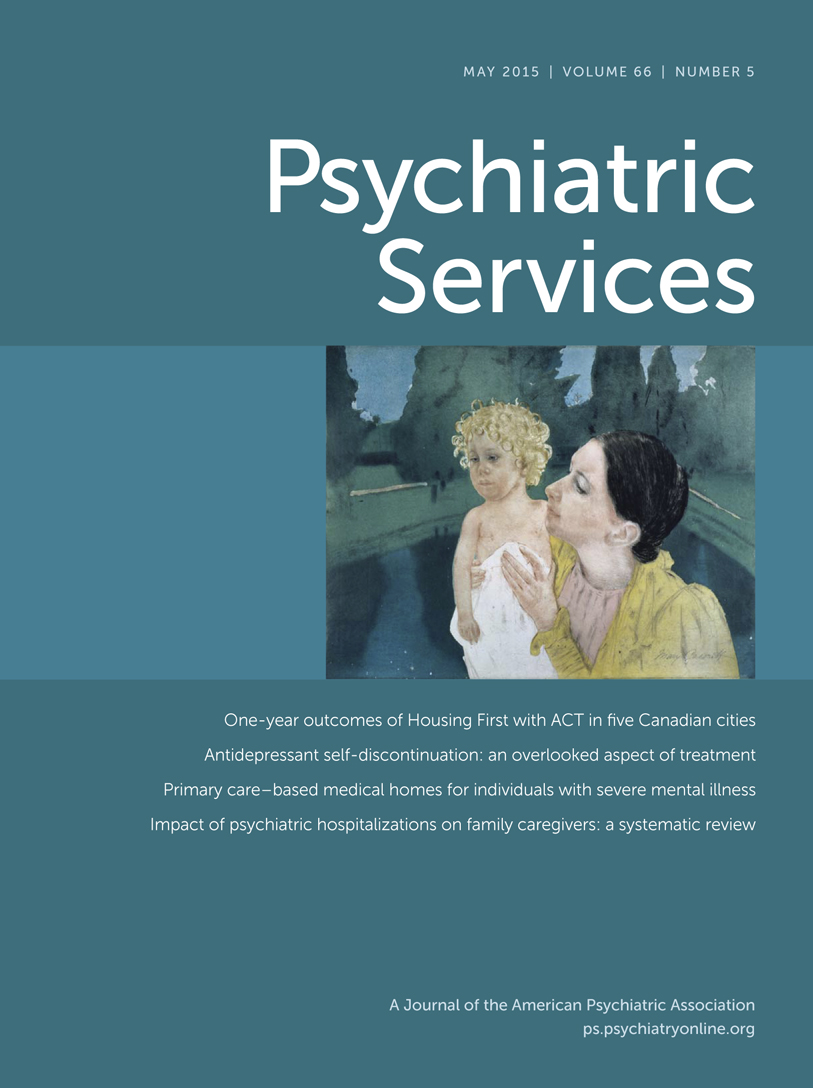Antidepressant Self-Discontinuation: Results From the Collaborative Psychiatric Epidemiology Surveys
Abstract
Objective:
The goal of this study was to examine the extent and correlates of self-discontinuation of antidepressant medications without physician advice.
Methods:
Among 1,411 participants of the nationally representative Collaborative Psychiatric Epidemiology Surveys who reported using antidepressants in the past year, sociodemographic and clinical correlates of self-discontinuation of medication without physician advice or approval were examined, along with participants’ reasons for discontinuation.
Results:
A total of 313 (22%) antidepressant users in the preceding year reported discontinuing their antidepressant medication without physician advice or approval. Older individuals had reduced odds of self-discontinuing antidepressants. Participants with an anxiety or substance use disorder and those prescribed an antidepressant by a provider other than a psychiatrist had higher odds of self-discontinuation. Participants with public insurance had lower odds of self-discontinuation than those with private insurance. The two most commonly reported reasons for self-discontinuation of antidepressants were side effects and experiencing no benefit from the medication.
Conclusions:
Physicians prescribing antidepressants need to clearly communicate the expected benefits of treatment, the minimum duration of use required to experience benefits, and the potential side effects of these medications, particularly to younger patients, those with anxiety disorders, and patients treated in general medical settings, all of whom have increased odds of self-discontinuation.



